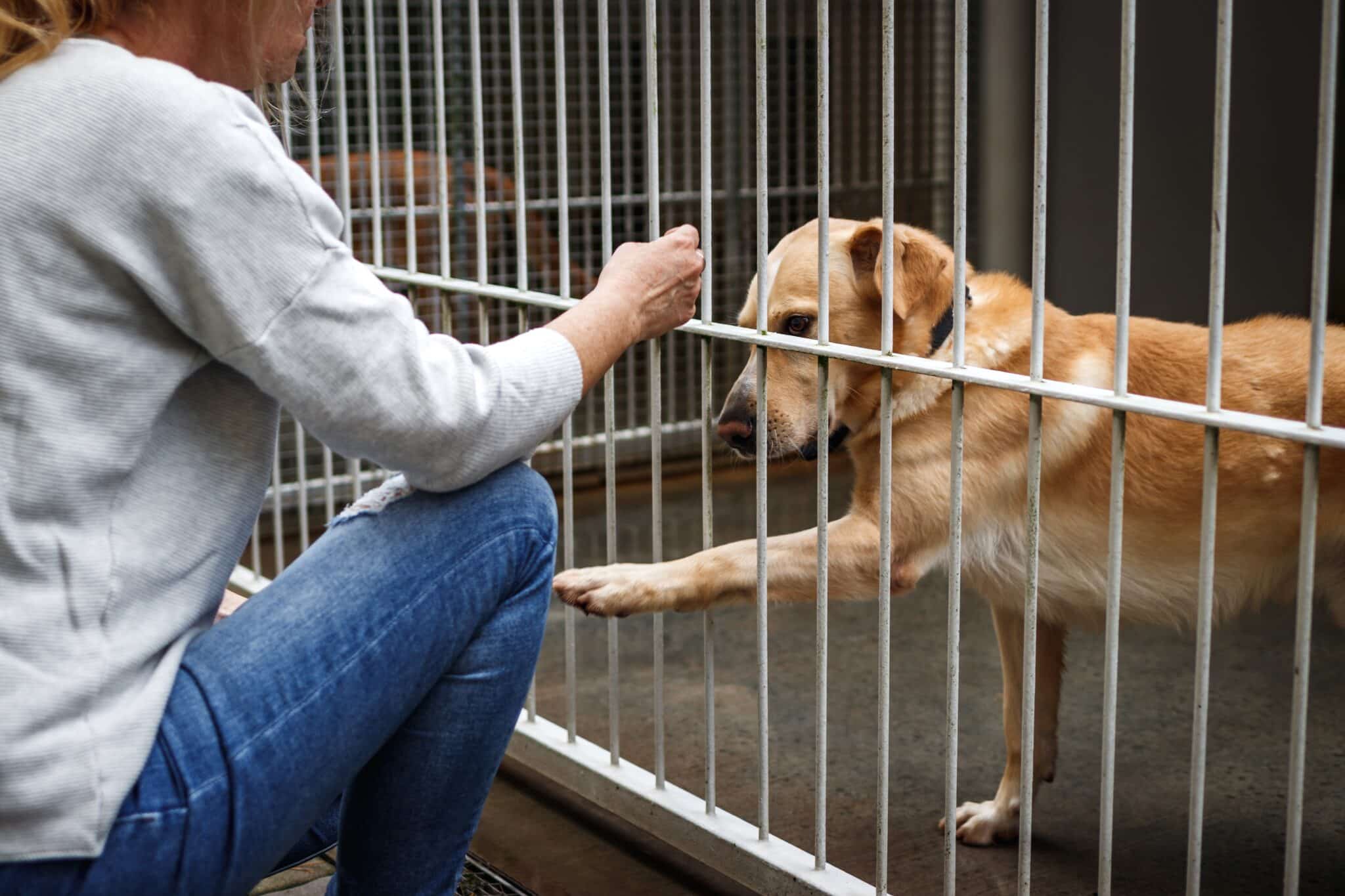When choosing a dog, many people are drawn to purebred breeds for their predictable traits, such as appearance, temperament, and behavior. However, alongside these benefits comes a lesser-known downside: an increased risk of genetic conditions. This article delves into why purebred dogs are more prone to genetic health issues, what it means for pet owners, and why adopting shelter dogs can be a great alternative to buying a purebred dog.
Why Purebred Dogs Are More Prone to Genetic Conditions
The Role of Inbreeding
One of the main reasons purebred dogs are more susceptible to genetic disorders is the practice of inbreeding, which occurs when closely related animals are bred together to maintain specific breed characteristics. Breeders often select dogs that exhibit desirable traits, such as coat color, size, or temperament, and breed them within the same bloodline. While this can help preserve a breed’s specific look or personality, it also reduces genetic diversity.
With limited genetic diversity, certain deleterious genes that might be rare in the general population become more common. Over time, this results in a higher likelihood that offspring will inherit the same defective gene from both parents, leading to genetic disorders. For example, a recessive gene responsible for a certain disease may be carried by many dogs within a breed, and because these dogs are bred together, it’s more likely that a puppy will inherit two copies of the gene, leading to the expression of the disorder.

Breed-Specific Health Issues
Different dog breeds are associated with specific genetic conditions due to their selective breeding history. Some examples include:
- Bulldogs and other brachycephalic (flat-faced) breeds are prone to breathing difficulties and other respiratory issues due to the shape of their skulls.
- German Shepherds are more likely to suffer from hip dysplasia, a condition where the hip joint doesn’t fit properly into the socket, leading to arthritis or lameness.
- Cavalier King Charles Spaniels are prone to syringomyelia, a painful condition where the skull is too small for the brain, causing pressure and neurological problems.
- Dalmatians have a high risk of developing deafness, as a result of the genetic trait linked to their distinct white coat and black spots.
Such breed-specific problems arise because the same genes that contribute to the breed’s defining characteristics are often linked to underlying health problems. As breeders prioritize maintaining the appearance and temperament of a breed, the risk of perpetuating genetic conditions grows.
The Founder Effect
Many purebred breeds are descended from a small group of “founding” dogs. This is known as the founder effect, where the initial breeding population is genetically limited. Every descendant inherits the genes of the original dogs, and if those founders carried harmful genetic mutations, the entire breed might be affected. For example, most Cavalier King Charles Spaniels are descendants of just a few dogs, which has contributed to the prevalence of heart disease and other issues in the breed.
Closed Gene Pools
Most dog breeds have closed gene pools, meaning that only dogs within the same breed are allowed to reproduce. This practice prevents the introduction of new genetic material into the population, which would otherwise dilute harmful genes. Without the influx of fresh genetic material, the risk of genetic conditions increases over generations. The more tightly controlled a breed’s lineage, the more likely these genetic disorders will persist.
What This Means for Pet Owners
Increased Veterinary Costs
One of the most immediate consequences for pet owners of purebred dogs is the potential for higher veterinary costs. Genetic disorders often require long-term management or surgical intervention. For example, dogs with hip dysplasia might need ongoing physical therapy, pain medications, or even surgery to improve their quality of life. Other conditions, like heart problems, might require regular veterinary checkups and expensive treatments.
Owners should be prepared to invest both time and money in managing their pet’s health issues. Pet insurance can help mitigate some of the financial burden, but it’s important to research policies thoroughly, as some may exclude coverage for breed-specific or pre-existing conditions.
Awareness and Preventive Care
Purebred dog owners should be proactive about their dog’s health. Since many genetic conditions are breed-specific, knowing which health problems to watch out for can lead to earlier diagnosis and treatment. Regular veterinary checkups, including breed-specific screenings, are essential. For example, hip x-rays for breeds prone to hip dysplasia or regular heart screenings for breeds at risk of cardiovascular issues can help catch problems early.
Additionally, understanding your dog’s genetic predispositions can help you make better lifestyle choices, such as feeding them a diet that supports joint health or preventing overexertion in dogs prone to heart issues.
The Emotional Toll
Owning a dog with a genetic condition can be emotionally challenging. The worry and stress of managing chronic health issues can weigh heavily on pet owners. Some conditions are degenerative, meaning they worsen over time, which can be heartbreaking for a family to witness. Knowing that certain breeds are more likely to face these challenges may help potential dog owners make informed decisions about what they are prepared to handle.
The Case for Adopting Shelter Dogs
Genetic Diversity in Mixed Breeds
One of the key advantages of adopting shelter dogs, especially mixed breeds, is their greater genetic diversity. Mixed-breed dogs, commonly found in shelters, come from a variety of genetic backgrounds, which reduces the risk of inheriting the same genetic disorder from both parents. As a result, they tend to have fewer breed-specific health problems compared to purebred dogs. This genetic variability contributes to what’s often referred to as “hybrid vigor,” which can lead to a longer and healthier life.
Saving a Life
Adopting a shelter dog not only potentially saves you from dealing with costly genetic conditions but also saves a life. Millions of dogs are in shelters waiting for loving homes, and by choosing adoption, you’re giving one of these animals a second chance. Shelter dogs come in all shapes, sizes, and temperaments, including purebreds and mixed breeds, so you may still find the breed you’re looking for.
Lower Costs and Support
Shelter dogs often come with lower upfront costs than purchasing a purebred dog from a breeder. Many shelters spay or neuter animals and provide vaccinations, microchipping, and initial health screenings as part of the adoption fee. Additionally, reputable shelters and rescues typically evaluate dogs’ behavior and health, providing valuable information to help you find the right match.
Furthermore, many shelters offer ongoing support, including training resources, to help make the transition to pet ownership smoother.

While purebred dogs offer the appeal of predictable traits, they also come with a higher risk of genetic conditions due to inbreeding and closed gene pools. Pet owners need to be aware of the potential health issues associated with their chosen breed and be prepared for the financial and emotional responsibilities that may arise.
On the other hand, adopting a shelter dog, especially a mixed breed, can offer many benefits, including reduced risk of genetic disorders, cost savings, and the fulfillment of saving a life. Whether you choose a purebred or a shelter dog, it’s important to make informed decisions that prioritize the health and well-being of your future furry companion.



